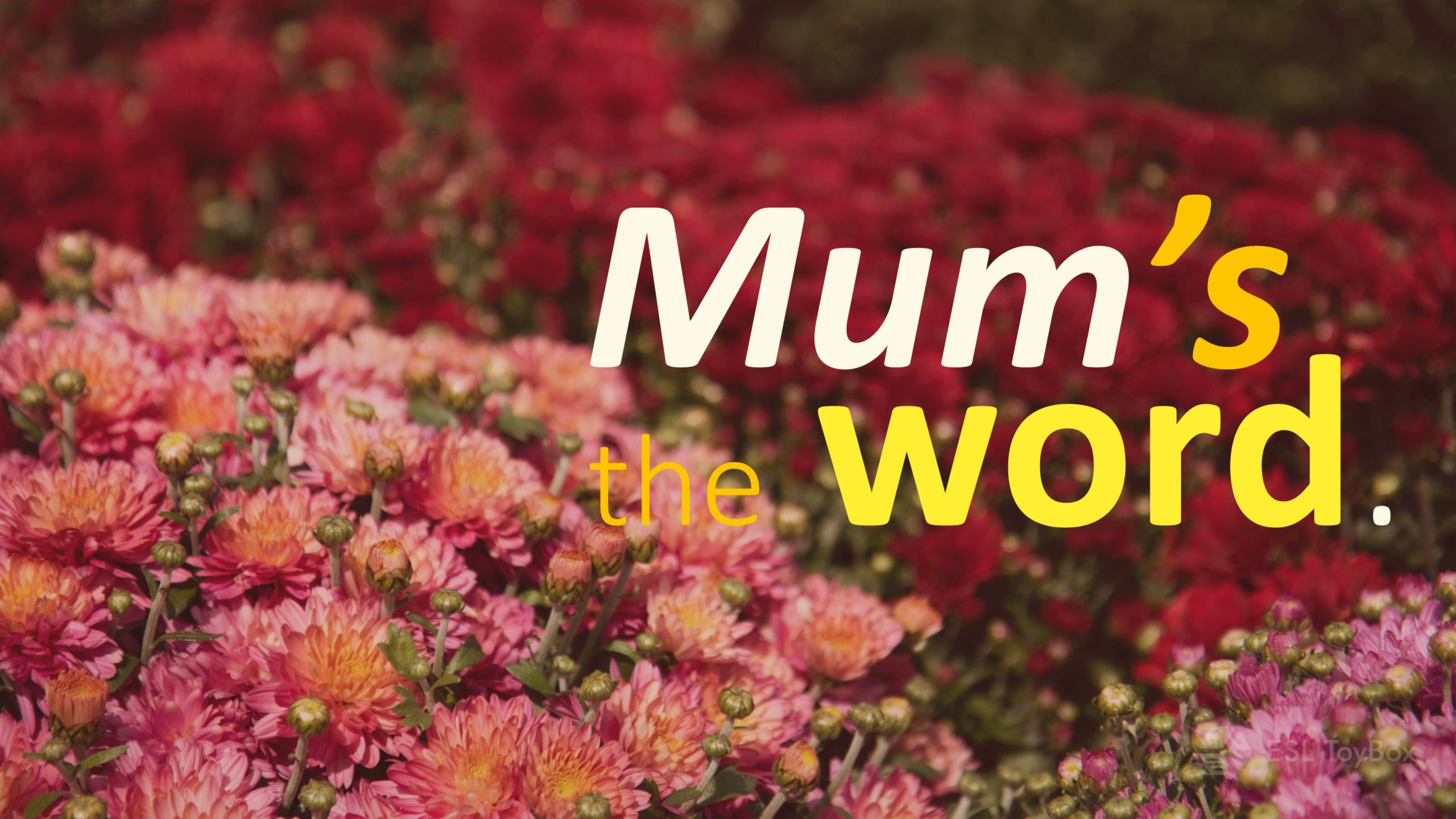Mum's the Word
Autumn Flowers
I love the reds, oranges, and yellows of the falling leaves in autumn. It is my favorite season of the year. Most of the garden flowers are dead or dying, but there is one flower that comes alive during this time, the chrysanthemum (국화). The short form, mum, is much more common and makes me think of the phrase, mum’s the word. However, those two words are not related.
I think it is the spelling that makes me connect the phrases. You may also see a similarity to mom. Indeed, mum has been used as a pet name for mother since 1823. Mum is more common in British English, while mom is more popular in American English. So, you may think that “mum’s the word” refers to mother, but that is incorrect. Mum can also mean silent and that is where the mum in mum’s the word comes from. The version of mum that means silent appeared in middle-English around the 14th or 15th century.
Mum may have been an onomatopoeia of the sound (mmm) you make when you can’t use words. It is sort of like a hum. This version of mum appears in a William Langland poem, The Vision of William Concerning Piers Plowman. It was written between 1370 and 1390. He wrote that it was easier to measure mist than it was to get this woman to speak even a mum.
Mummers
There was a class of performers called mummers. They were similar to mimes in that they performed silently. The mummer’s plays can be traced back to 1296 with roots that may go back to ancient Egypt. In England there was a tradition of mummers (wearing disguises) going around on Christmas and being invited into people’s houses. They would perform dances, put on plays, and play dice with the householder in silence. However, they were considered a nuisance because they used it as a chance to make fun of their hosts and cheat them out of a small amount of money. The church and the monarchy were particularly displeased with this tradition. In 1418, Henry V’s Letter-Book threatened imprisonment for mummers. The tradition lived on and continues to this day. There is a large New Year’s Day Festival in Philadelphia called the Philadelphia Mummers Parade.

Shhh....
Now that we know mum means silent, we can revisit the phrase mum’s the word. It is about keeping a secret. Mum’s is a contraction of “mum is.” So, the full phrase is “mum (silence) is the word”. You can use it to tell someone that you will keep it a secret, or you can use the phrase to tell someone to keep their mouth shut.
Example: “Jon is my secret Santa this year but please don’t tell him.” “Don’t worry. Mum’s the word.”
Example: I am going to propose to Judy but mum’s the word until after she says yes.
Shakespeare is credited with introducing the phrase to the public with his 1592 play, Henry VI, Part 2. He wrote, “Seal up your lips, and give no words but mum.” However, it was likely derived from the earlier phrase, mum is counsel. That meant, you are advised to say nothing. The earliest written use of this phrase was in a 1540 translation of The Comedye of Acolastus by John Palsgrave.

See Also: Spill the beans, The cat is out of the bag, Cat got your tongue?, To say the least
For more English phrases and quotes, follow me on Facebook:
https://www.facebook.com/ESL-ToyBox-112152010890485
Reference:
https://www.etymonline.com/word/mum
https://writingexplained.org/mom-of-mum-difference
https://www.historyextra.com/period/medieval/why-do-we-say-mums-the-word/
https://en.wikipedia.org/wiki/Mummers%27_play#:~:text=Mummers'%20plays%20are%20folk%20plays,%2C%20wrenboys%2C%20and%20galoshins).
https://www.pennlive.com/life/2019/12/what-is-a-mummer-history-meaning-and-more-behind-the-new-years-day-philadelphia-parade.html
http://quakercitystringband.com/a-history-of-mumming-how-the-mummers-got-here/
http://www.online-literature.com/view.php/henryVI2/3?term=mum
https://www.phrases.org.uk/meanings/mums-the-word.html
https://windowthroughtime.wordpress.com/tag/origin-of-mums-the-word/


